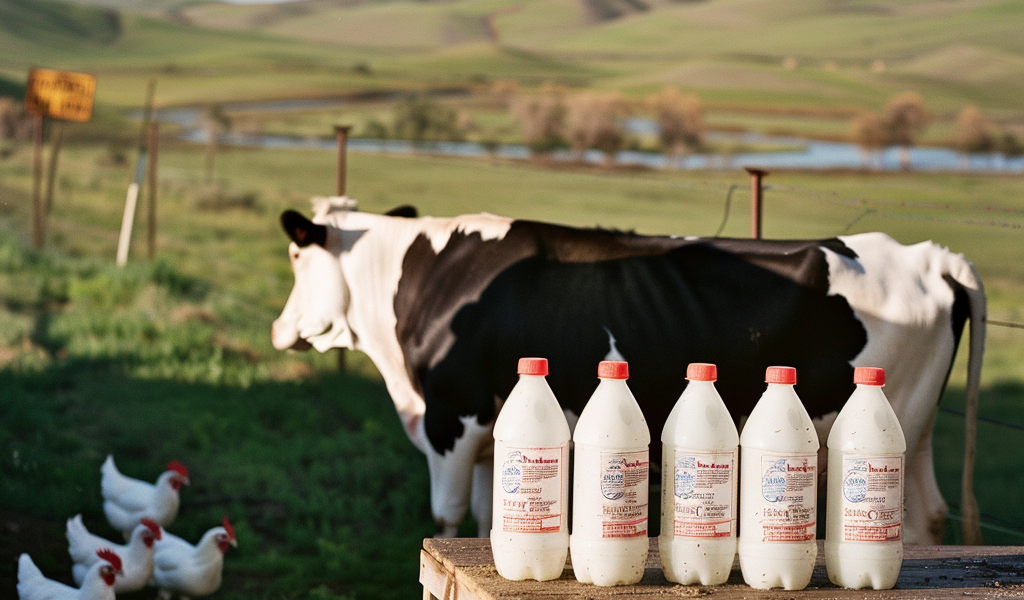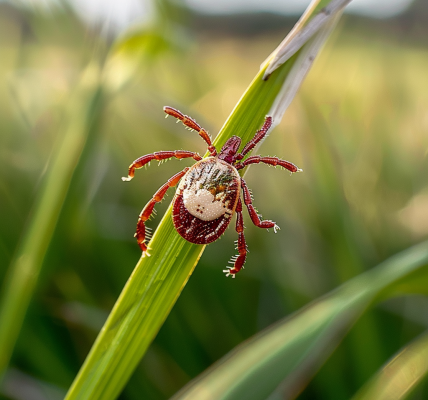The California Department of Food and Agriculture (CDFA) has announced a significant recall of raw milk from Valley Milk Simply Bottled, a dairy producer located in Stanislaus County. This action comes in response to positive avian flu test results from bulk milk samples, highlighting ongoing concerns regarding the spread of H5N1 in the region.
Stanislaus County, situated in California’s Central Valley, has been particularly affected by outbreaks of avian influenza since August. The current recall differs from a prior one involving Raw Farms, as it is not based on positive samples from products found on retail shelves but rather from bulk testing.
The CDFA’s recall order specifically targets quarts, half-gallons, and gallon-sized plastic jugs of raw milk with date codes ranging from December 23 to December 30. At this time, health officials have not confirmed any human cases linked to the consumption of this raw milk. However, there have been reports of two cat fatalities attributed to exposure from products produced by Raw Farms.
In a related development, the Centers for Disease Control and Prevention (CDC) reported a new probable human case of avian flu in Delaware. The source of exposure for this case remains unknown, adding to the complexity of tracking the virus’s spread. The CDC’s latest update indicates a total of seven probable human cases across the nation. Since the beginning of the year, there have been 60 confirmed human cases, most of which involved direct exposure to infected cows or poultry. Notably, two cases have been reported with unknown sources of exposure, one in California and another in Missouri.
The situation is further complicated by the recent confirmation of highly pathogenic avian influenza in Louisiana, marking the first reported case in the state. The outbreak involves a backyard poultry flock located in Bossier Parish, near Shreveport. Louisiana has also recorded its first probable human avian flu case, prompting wildlife officials to issue warnings about rising avian flu cases in wild birds, particularly during the fall migration season.
As the situation evolves, the USDA’s Animal and Plant Health Inspection Service (APHIS) has confirmed additional H5N1 outbreaks in California’s dairy cattle. Recent reports indicate eight new outbreaks, increasing the national total to 853 affected herds, with California alone accounting for 638 of these cases.
In addition to the dairy cattle outbreaks, APHIS has reported multiple poultry outbreaks across several states, including four commercial farm incidents in California. Specifically, two farms in Tulare County have been affected: a broiler farm housing 514,500 birds and a duck meat producer with 41,100 birds. Additional outbreaks have been identified in other duck production facilities across separate counties.
As public health officials continue to monitor the situation, the implications of these outbreaks extend beyond agriculture, raising concerns about food safety and potential human health risks. The ongoing spread of avian influenza necessitates vigilance and proactive measures to protect both livestock and public health.
With avian flu cases now reported in all 50 states, the urgency for effective monitoring and response strategies has never been more critical. Stakeholders in the agricultural sector, health officials, and the general public must remain informed and prepared to address the challenges posed by this highly pathogenic virus.





